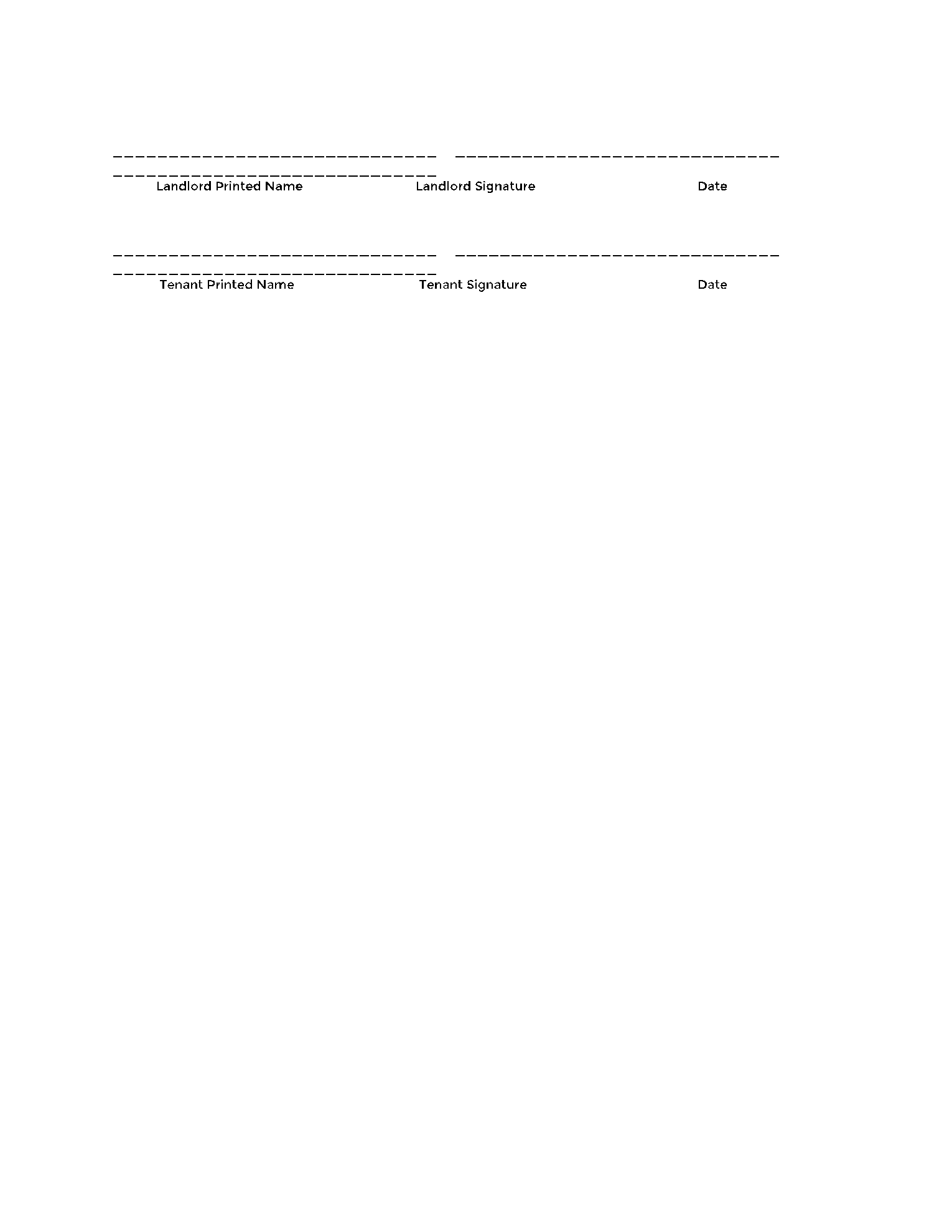When a lease agreement expires, both the landlord and tenant have some of the available options. The idea of signing a lease extension agreement is that the renter agrees with the terms of the original agreement.
The landlord can vacate or the two parties can agree to the renewal of the agreement. However, this possibility may involve some renegotiation of the terms of the new contract. That is why an extension agreement is beneficial for both lease and lessors. Additionally, the landlord can ask to update conditions and even a rise in monthly pay rents.
What Is a Lease Extension Agreement?
A lease extension agreement form refers to a legal contract between two parties that encompasses the prevailing lease agreement terms. Sometimes, the landlord and the renter want to continue the expired or existing agreement for a specific period.
In that case, signing a lease extension agreement is beneficial. Both the parties remain the same in the extension agreement as in the original contract. The owner has the authority to move out the renter if he does not sign on the lease extension agreement. So it is essential that the renter sign the extension agreement before the expiration of the original contract.
However, some landowners can allow a renter to continue on a month-to-month basis until the renter finds a new apartment. With the help of the lease extension agreement, you can prepare your contract for extending your lease effortlessly.
What Is Included In a Lease Extension Agreement?
Some specific information on the landlord and tenant needs to be included in a lease extension agreement. Some of them are:
- Name of the Landlord And Tenant: The lease extension agreement must include the name of the renter and the landowner. It makes the landlord clear that the tenant is responsible for all the mentioned terms legally. Additionally, it claims that if the tenant violates any of the terms of use then they can dismiss the tenancy.
- Address: The extension of the lease agreement includes the property address where the tenant is extending the use of living space. It guarantees the right to determine who is using the property and free the tenant from any kind of dispute.
- Start and End Date: The lease agreement includes the starting and ending date of the contract. The same is essential to include in the extension agreement. The landlord should mention the date when the extension starts and when will it be going to end.
- Percent Increase of Rent: If the landlords want to increase the rent, then they can update it in the extension agreement. They must let the tenants know about it while preparing for the lease extension form.
- Property Change: If the landlords want to make any changes in the property, they should mention it in the lease extension agreement.
When To Use a Lease Extension Agreement?
Usually, it is worthwhile for the landlord to keep a good renter who pays the rent on time. Additionally, the good renter is the one who agrees to all the conditions of the contract.
If the landowner has no problem with the tenant living in their place, then they may sign an extension agreement.
- If the tenant wants to continue the tenancy, then it is better to go for a residential lease extension agreement. It allows the renters to live without any interruption.
- The landowners who want all the terms and conditions to be maintained properly should go for extension agreement. The tenant should agree with all the terms of users mentioned in the extension contract.
- There is quite a risk that the renter’s accountability will end when the existing terms of the lease contract end. However, with the rental agreement extension, the preceding renter may remain responsible, unless the lease offers for its release.
- The landlord can become able to dismiss the lease during the extension term which occurred during the original lease conditions.
- If the renters have no problem continuing the contract that is personal to them, then extension agreement is advantageous. Additionally, there are many other potential benefits to signing a rental agreement extension form for both landowners and renters.
Why Sign a Lease Extension Agreement?
An extension agreement is a crucial part of the landlord and tenant relationship. It helps in reducing the risk involved for both parties.
Following are the reasons that indicate why the landlord should sign a lease extension agreement:
- If the landlord wants to keep the original lease terms complete, then the rental lease extension is beneficial.
- Under the terms signed in an extension agreement, the tenant has to provide proceeding notice before emptying the property.
- The extension agreement saves the cost of finding a new tenant plus any other expenses associated with space renovation.
Following are the reasons that indicate why tenants should sign a lease extension agreement:
- A lease agreement extension provides the renter with some stability.
- With a proper extension in place, the renters would not have to give up their things after the contract expires.
- If the tenant agrees to sign an existing agreement, then it saves them from finding a new and effective place. Additionally, they have not to face any hassle while shifting their essentials to a new place.
- The renters cannot only avoid a difficult move but expenses also by signing a lease extension agreement.
Conclusion
Signing a lease extension agreement means that the parties agree to continue the terms and conditions of the original lease contract. The landowners get a chance to increase the amount of rent by signing an extension agreement. In contrast, the tenants get a chance to ask the landlord for reducing the rent charges.
If you are looking for a template of the lease extension agreement, you can take help from CocoSign to get one.

